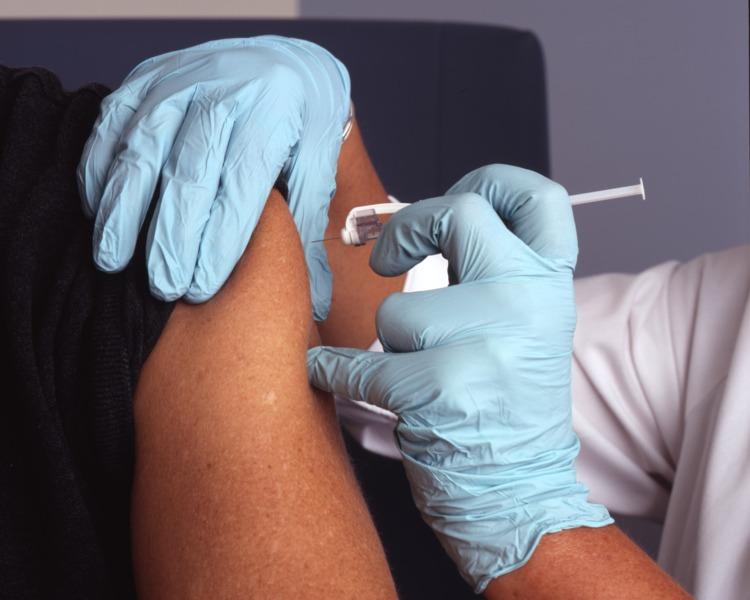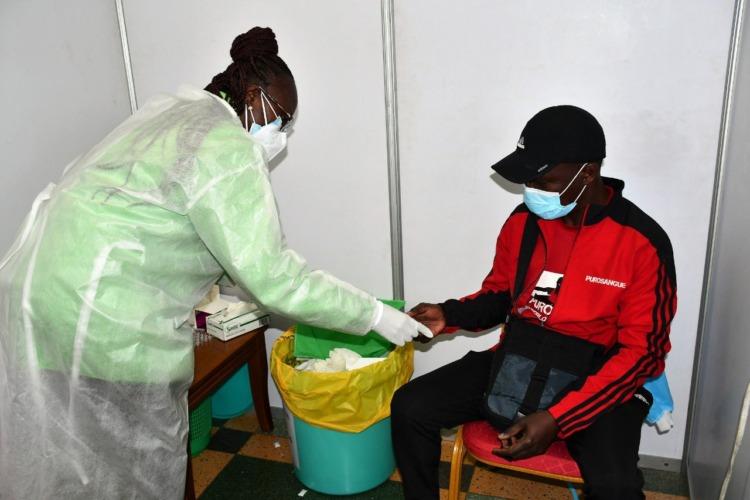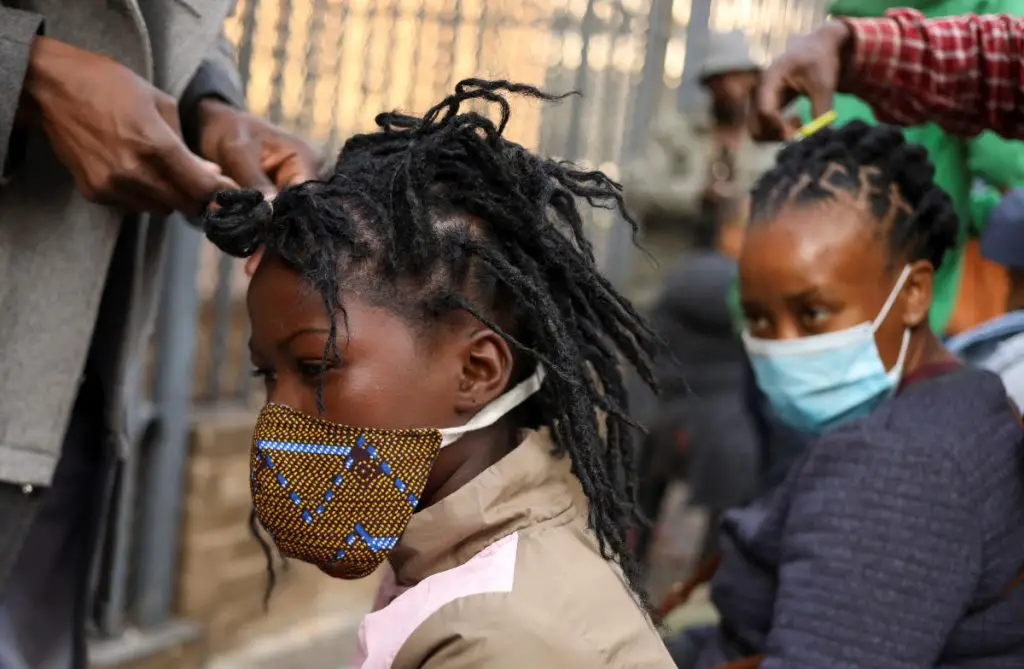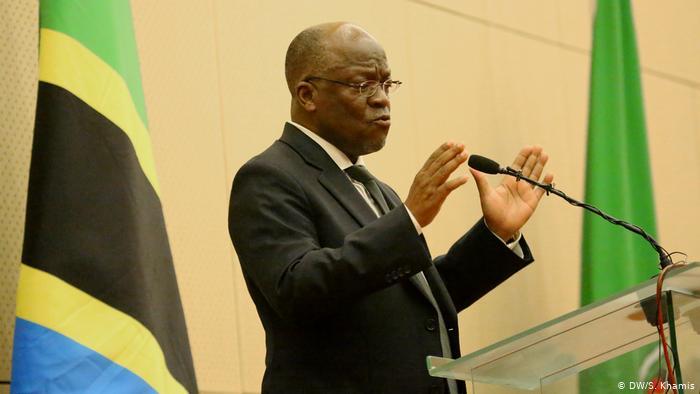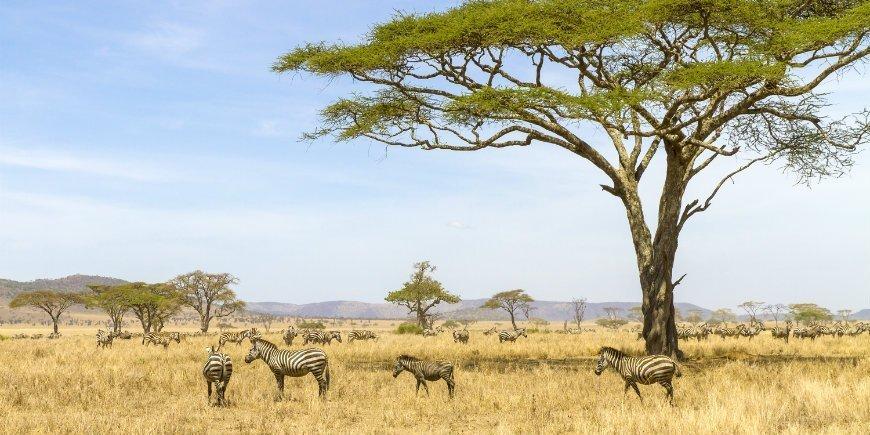- Africa’s natural resources: Will Trump’s policies benefit or exploit the continent?
- US Sanctions Zimbabwe’s gold smuggling Kingpin Kamlesh Pattni
- From Industry 5.0 to Future Finance: AIM Congress 2025’s bold agenda, key partners unveiled
- John Mahama Makes a Comeback as Ghana’s President
- Zambia’s solar energy drive: Fighting rural energy poverty with renewable options
- Nigeria to Ban Corn Exports Amid a Biting Food Security Crisis
- Democracy or diplomacy? Balancing U.S. interests in Africa under Trump 2.0
- African startups hit by funding drought in 2024, but innovation persists
Browsing: COVID-19 IN Africa
- Africa’s death rates from COVID-19 infections are significantly higher in patients with diabetes
- The disease causes inflammation and poor blood circulation, both of which increase the risk of complications, including death, from COVID-19
- In addition to people with diabetes, the three most frequent underlying conditions included patients with HIV and hypertension
New data indicates that Africa’s sharp increase in diabetes is clashing with the COVID-19 pandemic and poor access to vaccines.
Africa’s death rates from COVID-19 infections are significantly higher in patients with diabetes, according to a preliminary analysis which the World Health Organization (WHO) presented today in advance of the World Diabetes Day on 14 November.
Dr Matshidiso Moeti, WHO Regional Director for Africa said the COVID-19 pandemic will eventually subside, but Africa is projected in the coming years to experience the highest increase in diabetes globally.
“We must act now to prevent new cases, vaccinate people who have …
- Doses delivered to G20 countries per capita are 15 times higher than doses delivered per capita to sub-Saharan African countries
- Wealthy countries with more supplies than they need have generously pledged to donate these doses to low- and middle-income countries via COVAX but these promised doses are moving too slowly
G20 countries have received 15 times more COVID-19 vaccine doses per capita than countries in sub-Saharan Africa, according to a new analysis.
The analysis, conducted by science analytics company Airfinity, exposes the severity of vaccine inequity between high-income and low-income countries, especially in Africa.
It found that doses delivered to G20 countries per capita are 15 times higher than doses delivered per capita to sub-Saharan African countries, 15 times higher than doses delivered per capita to low-income countries and 3 times higher than doses delivered per capita in all other countries combined.
“Vaccine inequity is not just holding the poorest …
The super spreading virus that triggered a pandemic of global proportions has entered a second wave. Most African countries are struggling to cope. Their already fractured health systems are at pains and facing challenges in handling the ballooning cases. Lockdowns and travel restrictions are still in place for some countries, greatly impacting economic activity.
For example, Zimbabwe is currently in the middle of a month-long lockdown with only essential services operating. The restrictions have shut down all informal sector activity, which forms the bulk of economic activity. In South Africa, level 4 restrictions induced the closure of the busiest land borders. …
[elementor-template id="94265"]
The African continent has experienced a bitter reaction from the coronavirus pandemic, whereby as of May 13 almost every nation in the region battled the virus, while—other nations had cases less than 1000, the continent with some of the fast-growing economies could contract by 1.5 per cent and lose $200 b in income, according to International Monetary Fund (IMF) projections.
World Economic Forum brings an interesting perspective to the fold, as it pictures the regional economies in a deterioration hotbed as a result of de-globalization, and underlying factors such as operation shift to digital and debt burdens.
Hence—African Development Bank (AfDB) one of Africa’s vibrant financier has risen and displayed a rather crucial analysis pertaining the fate of the regional economy, the report was released on Tuesday 6 July 2020.
As the rest of the world strives to salvage and bounce back to normalcy, still—there are vital aspects at play …
Tanzania just stepped into a whole new ground in fighting the novel coronavirus (COVID-19) as president John Magufuli assured Tanzanians on stringent actions in safeguarding the economy, which is restricted by the virus. The head of state was addressing worshipers during a Sunday service in his hometown.
“We have had several viral diseases, including AIDS and Measles. Our economy must come first. It must not sleep. If we allow our economy to sleep, we will not receive salaries, church offerings will cease if we announce a lockdown, Life must go on,” he said
According to President Magufuli, COVID-19 cases have shrunk to low levels, compelling him to reopen universities and the football leagues. In March, the East African nation saw the closure of hotels, schools, universities, and other social gatherings–in response to curb the virus.
Since the first COVID-19 case broke, Tanzania’s air travel, MICE (meetings, incentives, conferencing and exhibitions) …
The novel coronavirus (COVID-19) is stealing the life out of the billion-dollar tourism industry in Tanzania, the government has already laid out a warning that at about 477,000 jobs could be lost, while revenue will shrink by 77 per cent if the virus outbreak endures hurting people past October this year.
According to the Tanzanian ministry of tourism, the number of tourists arriving in Tanzania rose from 1.3 million in 2017 to 1.5 million in 2018, whereas this increment made the sector to garner $2.4 billion (7.2 per cent increase) compared to 2.3 billion in 2017.
This means that the forex earning sector could collapse as the virus outbreak takes various dynamics over time and space in Tanzania, thus currently health authorities reports indicated 480 people have contracted the virus and 16 people succumbed by the virus.
Tanzania is one of Africa’s leading tourism markets, with exotic landscapes of the …
The East African coronavirus (COVID-19) battle has been fortified with $1.23 billion from the International Monetary Fund (IMF).
Both Kenya and Uganda have so far confirmed more than 600 cases of the virus.
COVID-19 Funding in Kenya
According to the IMF statement, on Wednesday the IMF Executive Board approved the disbursement of SDR542.8 million (100 per cent of quota, about US$739 million) to be drawn under the Rapid Credit Facility (RCF).
“This will help to meet Kenya’s urgent balance of payments need stemming from the outbreak of the COVID-19 pandemic,” The statement read in part.
The impact of COVID-19 on the Kenyan economy will be severe. It will act through both global and domestic channels, and downside risks remain large.
The Kenyan authorities have taken decisive action to respond to the pandemic’s health and economic impacts, the sudden shock has left Kenya with significant fiscal and external financing needs. Authorities …
Tanzania is one of East Africa’s nation battling the spread of coronavirus on a daily basis.
The country has now taken measures to curb the spread of the deadly virus, including acknowledging the role of traditional medicine and even reshuffling the health sector to bring new energy in winning against the virus.
Traditional Medicine
The novel coronavirus that has taken 16 lives and infected nearly 480 people in Tanzania, could be dealt with new support from the traditional medical landscape.
According to information from The Citizen, the Tanzanian National Institute for Medical Research (NIMR) has joined forces with the ministry of health to develop guidelines on how and what type of traditional medicines should be used for the treatment of the coronavirus (COVID-19).
The incorporation of traditional medicine came with critical support from the President John Magufuli and other influential legislators who argued for the right use of the traditional …
The coronavirus (COVID-19) pandemic has taken a new shift in South Africa, as the nation of more than 58 million anticipates to ease down its lockdown with phased reopening after rolling in the strictest movement restriction in the region.
According to information from the Financial Times, the South African government is discussing a five-level alert system, facilitating the current president Cyril Ramaphosa administration to reopen the country with low risk of contracting the virus.
Currently, the situation in South Africa has taken another shift, as Bloomberg News reported according to the health ministry, South Africa has 5,350 confirmed cases as of Wednesday, 354 more than yesterday, while the number of deaths recorded was 103.
Also, the ministry revealed that 11,630 tests were conducted in the past 24 hours, adding up the number of tests to 197,127.
However, the South African agricultural exports are slated to resume operations under the new …
The coronavirus (COVDI-19) pandemic has taken a new shift in Tanzania, as new 196 cases confirmed by the Tanzanian Prime Minister Kassim Majaliwa earlier today, the information he revealed pertaining the confirmed cases, include also figures announced by the health ministry of the semi-autonomous region of Tanzania, Zanzibar.
READ:COVID-19 in Tanzania: Cases rise to 254; death toll hits 10
Further, the number of the deceased rose to 16 as six more people succumbed to the deadly and Zanzibar has confirmed 22 cases, according to the Prime Minister.
On April 24 the health minister Ummy Mwalimu announced the number of patients recovered from virus stood at 37, and through the past 6 days, the number of recovered patients rose to 167, whereas 36 are from Zanzibar and 83 are from mainland Tanzania.
The number of the confirmed cases have risen by nearly 69 per cent since the last time the …





